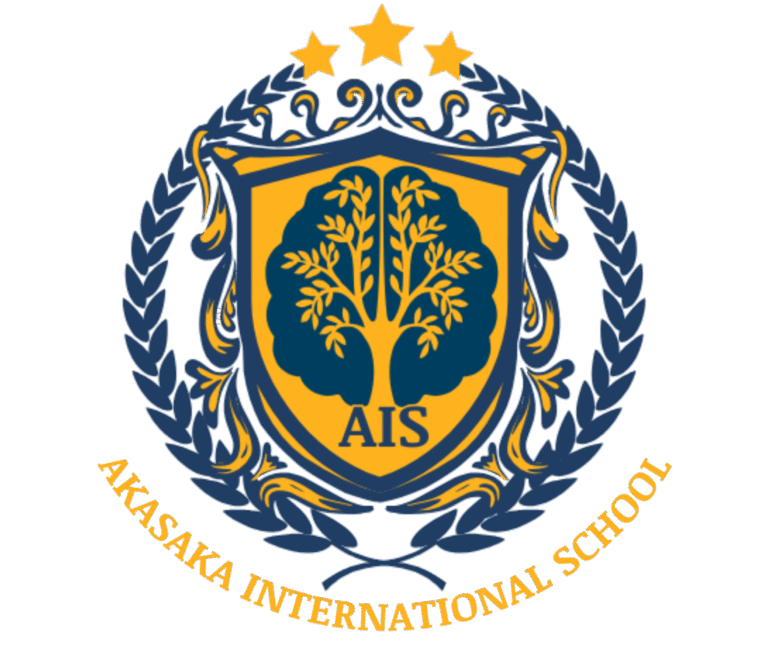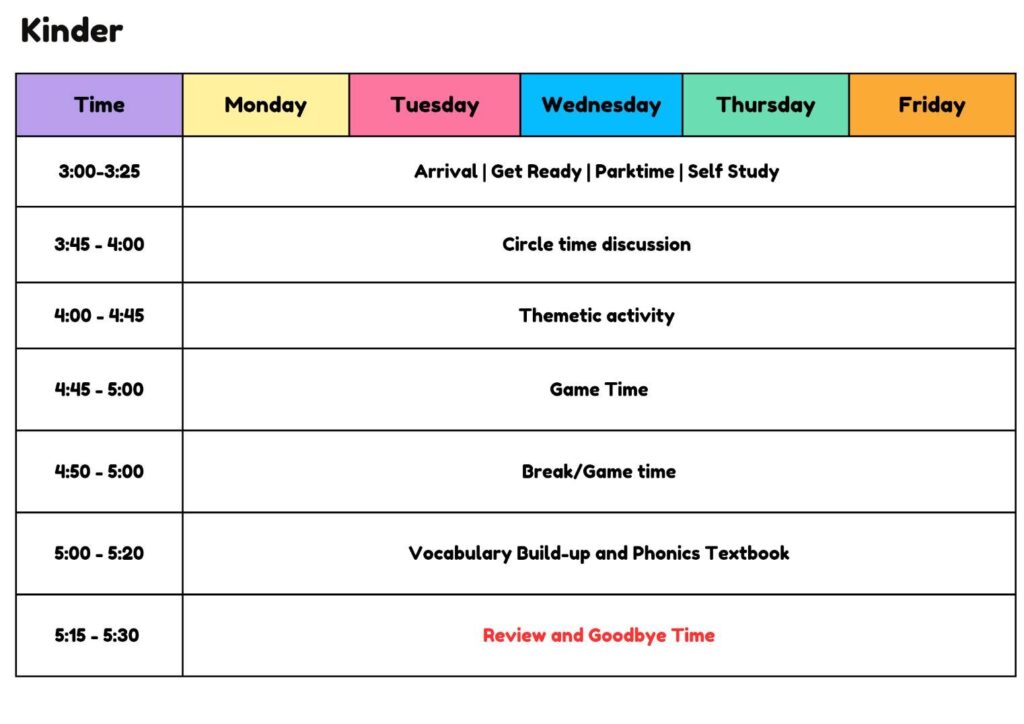Kinder Class
Learn English and connect with the world.
An international school that paves the way to the future
We offer three programs – Preschool, Kindergarten, and Elementary – to accommodate your child’s age and developmental stage.
All programs focus on English education, and we provide an environment where children can learn while having fun.
Kinder Class
While becoming familiar with English, students will acquire basic daily habits and group living. This program allows students to naturally acquire English through singing, dancing, and craft activities.
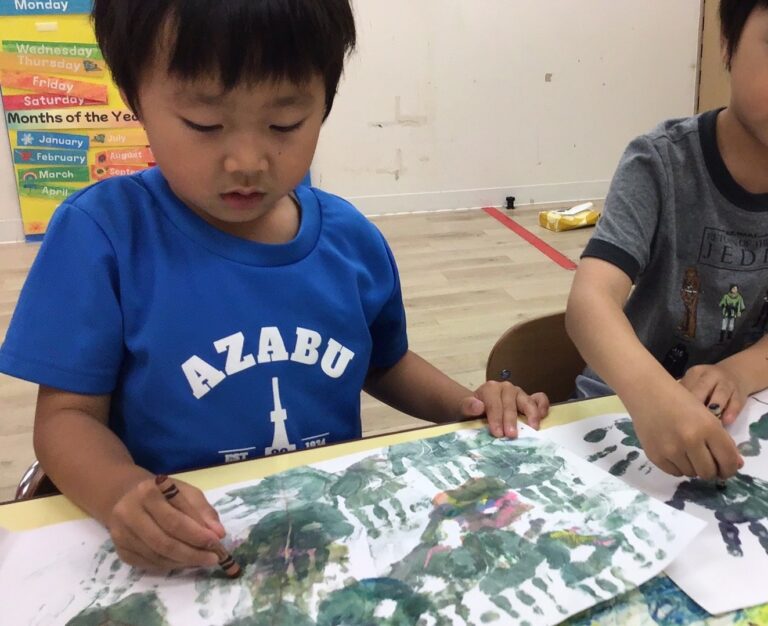
Phonics is a fun way to develop reading and writing skills
In the Kinder class, we incorporate phonics, which teaches the relationship between English letters and sounds, and help children acquire the basics of English literacy (reading and writing) while having fun.
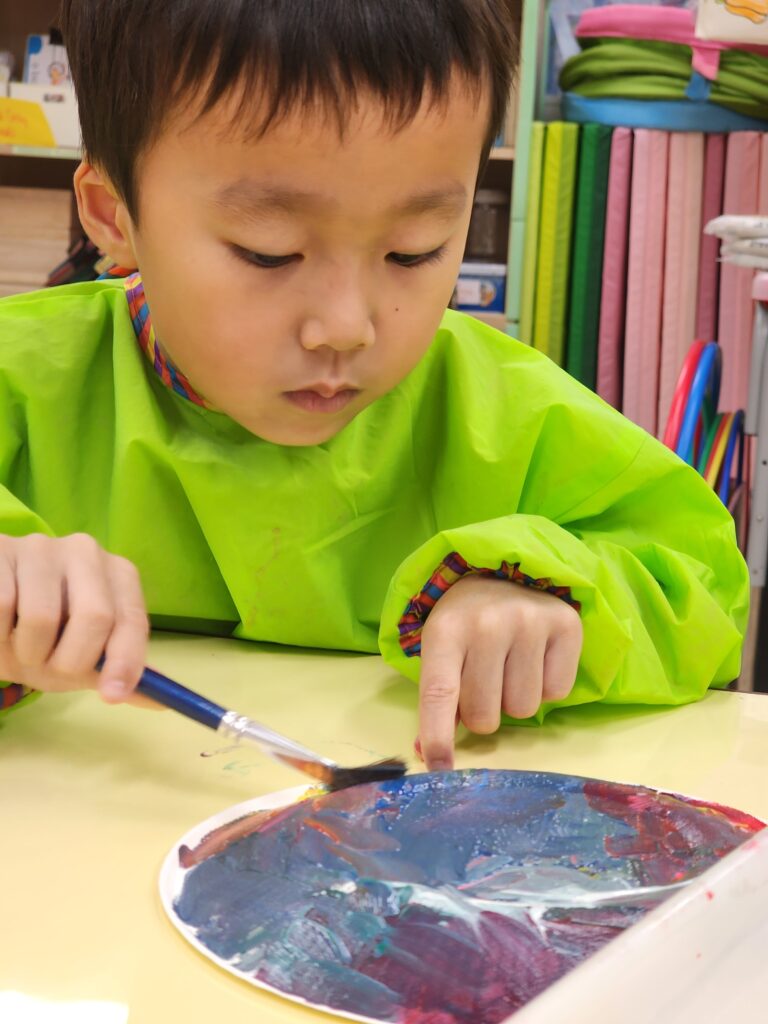
Collaborative learning, group games
By playing group games with friends and following the rules, children naturally develop social skills and cooperation. By having fun with their peers, they also develop a considerate attitude.
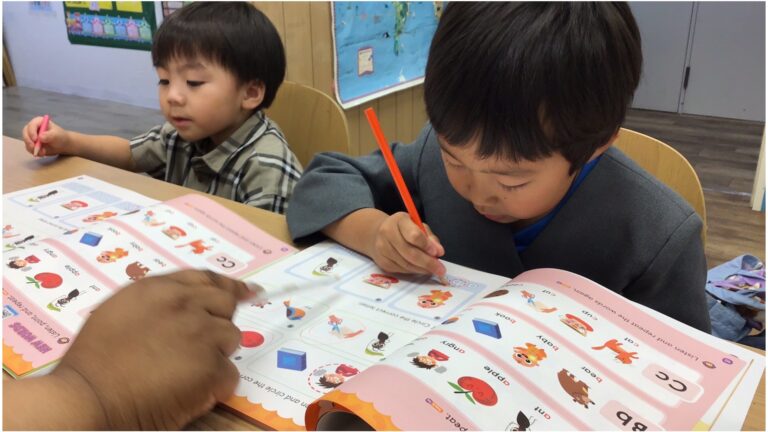
Developing the ability to devise rules and come up with strategies
We incorporate thinking elements into play, bringing out children’s creativity and logical thinking by creating game rules and holding strategy meetings.
Every day is fun and learning
Kinder class is a place where we nurture your child's "I can do it!"
Weekly Schedule
Technology and Engineering
(Only for junior and senior students)
Learning the basics of programming is very effective in developing children's creativity, logical thinking, problem-solving skills, and other abilities, so we are incorporating programming education into our regular English curriculum. By learning programming, children will not only be able to watch videos and play games, but will also be able to use their creativity to create things on their own.
Craft&Art
Through Craft & Art, we aim to develop children's expressiveness and creativity. Children do not simply work on projects as instructed, but instead think about what kind of project they want to create based on a given theme and engage in creative activities freely. Instructors do not provide detailed instructions on the content of the projects, but rather respect the children's autonomy and free thinking.
Science & Math
Science experiments and mathematics are great ways to develop imagination and logical thinking by formulating hypotheses and predicting outcomes, while the fun and surprises foster interest in learning.
Motor Skills
Motor skills are important in building children's self-confidence. They impact a child's ability to concentrate, sit still and engage in different activities. Developing fine motor skills is linked to academic readiness and success, and fine motor skills are associated with improved academic achievement, especially in areas such as math and reading.
Development
Social-emotional learning is the process by which children learn to understand themselves and their relationships with others, manage their emotions appropriately, and develop healthy social skills. The goal is to raise compassionate children. These skills are important not only in early childhood, but also in their future school and social lives.
